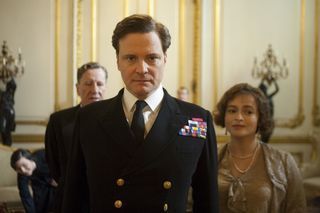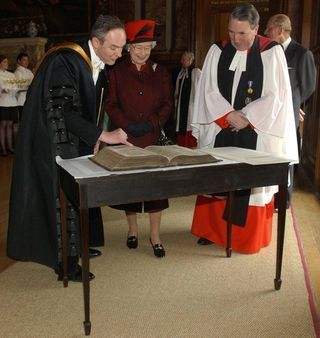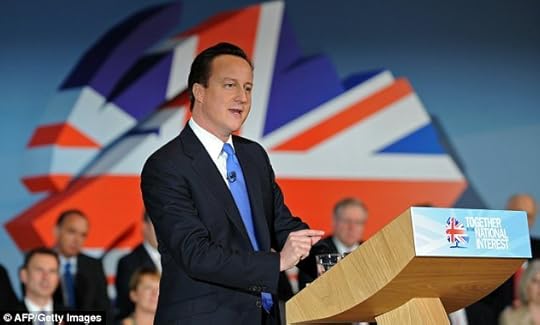Peter Hitchens's Blog, page 340
January 10, 2011
Wave of hate - or something else?
 The left-wing media are full of attempts to blame the Arizona murders on some sort of wave of hatred engendered by 'right-wing' movements, radio stations etc. So far as I can see, there is absolutely no evidence for this. I have little liking for the raucous tone of the 'Tea Party' and the supposedly conservative talk radio hosts, who seem to me to be Reaganites without the charm or the Cold War to justify or excuse them, economic liberals, emptily belligerent abroad, uninterested in genuine conservative reform at home, and very far from conservative in any proper sense.
The left-wing media are full of attempts to blame the Arizona murders on some sort of wave of hatred engendered by 'right-wing' movements, radio stations etc. So far as I can see, there is absolutely no evidence for this. I have little liking for the raucous tone of the 'Tea Party' and the supposedly conservative talk radio hosts, who seem to me to be Reaganites without the charm or the Cold War to justify or excuse them, economic liberals, emptily belligerent abroad, uninterested in genuine conservative reform at home, and very far from conservative in any proper sense.
But this claim (as a sensible radio report from the BBC's Jonny Diamond made clear on the 'Today' programme this morning) is not necessarily the case. Evidence for it is scant, and the main reason for the connection being made is an outburst by a local sheriff. Only one of the victims could conceivably have been the target of political rage. The Judge who was killed was there by chance and the killer almost certainly didn't know who he was. More significantly the alleged killer is said to be an incoherent, cannabis-smoking ( and possibly LSD-taking) loner from a dysfunctional and far-from-conservative home background. He is said to have a police record for possession of drug paraphernalia and another unspecified charge. Those who claim that the USA conducts a 'severe war on drugs' might note that this event resulted in a 'diversion programme', not several years in the slammer.
I would, as usual in such cases, ask whether he has in the past or at the present been prescribed anti-depressants or other drugs of this nature, as the culprits of such killings very often turn out to have been ingesting these substances. But it is worth mentioning that in this case cannabis, with its well-known association with serious mental illness, especially in those of school age, may have taken the place of such things. And if he has taken LSD, then the danger of total mental overthrow is even greater.
If you want to comment on Peter Hitchens, click on Comments and scroll down.
The Real King's Story, versus 'The King's Speech'
 I have now at last actually seen 'The King's Speech', the powerfully-hyped film whose advance publicity has been an absolute model of the propagandist's art. I would love to know exactly how it was done.
I have now at last actually seen 'The King's Speech', the powerfully-hyped film whose advance publicity has been an absolute model of the propagandist's art. I would love to know exactly how it was done.
It is certainly working. The Oxford cinema where I watched it on Sunday evening was sold out, and the audience was composed of left-wing and conservative types, mostly the middle-aged market that so many modern movies foolishly ignore or despise, each group with their own entirely different reasons for wanting to see it, entertainment being only one of them.
The swearing, as I had thought it would be, was unnecessary and false, put in because it pleased the makers rather than because it was central to the story. Utterly unbelievably, it is shown as taking place within the hearing of the speech therapist's two schoolboy sons. And Colin Firth is badly miscast, as his robust and confident physique and manner were seriously unconvincing in the role of the desperately shy, frail, hollow-cheeked Duke of York. No, I can't offhand suggest the right person, but Mr Firth was the wrong one for sure.
The profanity did most certainly amuse a woman sitting several feet to my left, who had a laugh like a wombat being electrocuted, and who took special joy in every bit of bad language (and in every scene where Royal status was coarsely punctured or belittled).Though it was notable that the auditorium was divided on this. Some laughed uncontrollably. Several others remained silent or laughed in a more subdued way. Maybe it was the screeching wombat, whose grating mirth might have made others, less abandoned, wonder if they were right to find such things funny.
Laughter is a very strange thing, which we prefer not to think about very much, and is often just the collective cackle of a gang, reassuring each other that they're all in the same pack. The idea that laughter is necessarily about pleasure or happiness is simply false. Though laughter can be pleasing, or a release from tension and fear, or a bonding device, it can also often be rather nasty.
But it wasn't by any means the worst scene in the film, or the greatest offence against historical truth. I'll come to the offence against truth later. The worst scene may I suppose possibly be true, but I've never previously heard of it and I'd be grateful if anyone can tell me (I've so far not read the book on which the film is loosely based).
But it features the King and his speech therapist in the midst of a deserted Westminster Abbey, with the Coronation Chair (King Edward's Chair) already installed on its dais. At one point the therapist slumps in the sacred Chair itself, smirking to provoke the King into anger - and so, we are led to believe, into conquering his stammer. As he coaches the King through the Oath, the speech therapist (Lionel Logue) skips large parts of the wording using the words: 'Rubbish. Rubbish, rubbish.'
Here are the words so treated (actually, the expression: 'Rubbish, rubbish rubbish' isn't used until after the first promise):
The Archbishop of Canterbury: 'Will you solemnly promise and swear to govern the Peoples of the United Kingdom of Great Britain and Northern Ireland, Canada, Australia, New Zealand, the Union of South Africa, Pakistan and Ceylon, and of your Possessions and other Territories to any of them belonging or pertaining, according to their respective laws and customs?'
The King: 'I solemnly promise so to do.'
The Archbishop of Canterbury: 'Will you to your power cause Law and Justice, in Mercy, to be executed in all your judgments?'
The King: 'I will.'
The Archbishop of Canterbury: 'Will you to the utmost of your power maintain the Laws of God and the true profession of the Gospel? Will you to the utmost of your power maintain in the United Kingdom the Protestant Reformed Religion established by law? Will you maintain and preserve inviolable the settlement of the Church of England, and the doctrine, worship, discipline, and government thereof, as by law established in England? And will you preserve unto the Bishops and Clergy of England, and to the Churches there committed to their charge, all such rights and privileges, as by law do or shall appertain to them or any of them?'
The King: 'All this I promise to do. The things which I have here before promised, I will perform, and keep. So help me God.'
If Mr Logue thought these sentiments were 'rubbish', I wonder what the nature of his commitment was? Or why he is supposed to have been such a loyal friend and companion to a King who undoubtedly took these words very seriously indeed (as well he might).They are the keystone of authority in this country, and the ideas they embody distinguish our form of government and society (and to some extent that of Mr Logue's native Australia) from (for instance) the elected and plebiscitary dictatorship of National Socialist Germany, the Vanguard Party dictatorship of the USSR and the elective monarchy of the USA. It is also hard to believe that Logue, an actor shown as being a great lover of Shakespeare, would have treated such a matter so lightly even as an element of a performance.
Actually, I doubt very much if this actually happened. But I suspect the makers of the film do think such things are rubbish, without even realising that this is a point of view, and so thought this a good and easy way of rushing through the scene, which also contains a childish and incredible caricature of the Archbishop of Canterbury, Cosmo Gordon Lang. Lang may not have been the greatest holder of the post, but he was more interesting and more intelligent than he is shown to be in this portrayal. His much-criticised attack on Edward VIII (once he had clearly lost the battle to stay on the throne) was a pretty melodramatic moment which would have made good cinema.
But back to the offences against history. To make George VI acceptable as a sort of hero to left-wing watchers of this film, the British Royal Family is portrayed as a sort of weapon of war against Hitler. George V, Stanley Baldwin and others are credited with amazing foresight about the future, as is Winston Churchill.
Well, as readers of this site well know, even Mr Churchill wasn't quite as prophetic as all that (in 1936 he urged talks with Hitler over the German reoccupation of the Rhineland, rather than the swift military action which everyone now claims to realise was the right thing to do, and even in that he was more militant than anyone else, as the general belief was that it was nothing much to worry about).
Churchill himself plays a particularly odd part in the film. I watched this with special care because Deborah Ross, in her review of the film in 'The Spectator', said that the actor Timothy Spall (who plays Churchill) was 'channelling Peter Hitchens' in his portrayal of the great statesman. I have never been entirely sure what 'channelling' means, or why it's different from 'mimicking', but when I watched Mr Spall struggling with the role, eyebrows knitted and jowls throbbing, I realised with hilarious clarity exactly how some of my foes view me. Oh, that Peter Hitchens (or as he is known in my household 'The Hated Peter Hitchens').
But leave that aside. And I'm prepared to accept that Stanley Baldwin really thought as early as 1937 that Churchill was right about Germany, though I didn't realise it before.
The first of two things that really jam in the gullet is the way that Churchill's (ridiculous) support for Edward VIII in the Abdication Crisis is glossed over as if it didn't exist. In fact, he was so besotted with Edward, and so unable to see that his cause was lost, that he did grave damage to the cause of rearmament by making his support public.
He did this most notably in December 1936 at the inaugural rally of a new movement for rearmament called 'Arms and the Covenant', wrecking its impact by using this platform to speak in support of Edward VIII (when it was already too late anyway, even if it had been the right thing to do, which it wasn't). This is a well-known historical fact, but Churchill hagiographers tend to whizz past it because it reminds us that the supposedly impeccable Churchill was often a political incompetent.
The second is the final scene, in which George VI triumphs over his stammer, making a broadcast to the nation on the outbreak of war in September 1939. This portion of the film, full of historically unlikely moments, is signalled as momentous by the playing of the second (allegretto) movement of Beethoven's Seventh Symphony. This, perhaps the most sublime piece of music ever written, is almost guaranteed to make the heart swell with emotion, particularly when played in semi-darkness over the powerful loudspeakers of a modern cinema. I doubt if the sequence would have one tenth of its moving power without the Beethoven.
Did BBC technicians and ministers really applaud the King for making a speech without stuttering? Did they congratulate him (it was, after all, a pretty grim occasion, the beginning of an unknown period of sudden death, destruction, privation and loss, not just some prize-day oration).
Did crowds gather outside Buckingham Palace inspired by the broadcast? I have checked the files of the Daily Mail for that date, and can find no account of such an event. Nor, incidentally, do I think that the pubs would have been open that early on a Sunday evening in 1939, though the brief shot of gnarled citizens listening glumly to the King on the wireless in a shadowed public bar is a work of art. Where did they find people with such old-fashioned English faces? I thought they had all gone.
 But, tenderly as I feel towards George VI (in whose reign I was born, and who seems to me to have been a basically decent if not terribly bright cove who did a lot to preserve the crown and undo the damage wrought by his selfish brother) I think I should point out that there had in fact been an occasion in his reign around that time, when crowds did gather outside Buckingham Palace. It is one we prefer to forget (though the newspaper accounts of it at the time are almost universally approving and close to ecstatic).
But, tenderly as I feel towards George VI (in whose reign I was born, and who seems to me to have been a basically decent if not terribly bright cove who did a lot to preserve the crown and undo the damage wrought by his selfish brother) I think I should point out that there had in fact been an occasion in his reign around that time, when crowds did gather outside Buckingham Palace. It is one we prefer to forget (though the newspaper accounts of it at the time are almost universally approving and close to ecstatic).
It took place in early October 1938, on the evening of the day Neville Chamberlain returned from Munich with his piece of paper. On the King's own initiative (so far as I can discover), Mr Chamberlain was invited to the Palace to stand on the balcony and bathe (alongside the young King and Queen) in the adulation of London's delighted millions, who did not in the least want a war or object to the dismemberment of Czechoslovakia, but who also didn't understand the stakes being played for. The only anti-aircraft searchlight then in existence in the London area was trained on the balcony as a spotlight. Personally I regard this behaviour by the Monarch as an unconstitutional and partisan action, which Chamberlain should have prevented by refusing to take part, and would have done if his head hadn't been so swollen by praise.
Like the Molotov-Ribbentrop Pact of August 1939, the Munich agreement (and the reactions of people to it) is simultaneously disreputable and far more interesting than the smiley and largely false 'Finest Hour' version of history of which this film will now form a part. Wait and see how long it is before 'everyone knows' many non-facts which this production presents as true. When next you hear Munich discussed, remember that almost everyone, including people just like you, was in favour of it at the time, even that nice shy King George. This is a fact which we should not forget the next time any political action meets with universal approval.
If you want to comment on Peter Hitchens, click on Comments and scroll down.
January 6, 2011
The King James Bible versus the Sid James Bible
 On this, the Feast of the Epiphany, a word or two on the Authorised Version of the Bible, known to Americans(and increasingly known here) as the 'King James' version, which has been the subject of some discussion, oddly enough, on the Open Prison thread.
On this, the Feast of the Epiphany, a word or two on the Authorised Version of the Bible, known to Americans(and increasingly known here) as the 'King James' version, which has been the subject of some discussion, oddly enough, on the Open Prison thread.
'Private Eye' this week has a rather good jeer at the Church of England's supposed reverence for a book it never uses, and also (I think this is their coinage) uses the expression: 'The Sid James Version' to describe the many horrible modern translations of the Bible which are used instead.
Meanwhile the Queen (though weirdly interrupting her message to babble about sport) and the Archbishop of Canterbury, have recently spoken in praise of the 1611 Bible, and BBC Radio 4 has been running a series, hosted by James Naughtie, on the history of the Authorised Version.
But what I have yet to hear (outside 'Private Eye') is any reference to the fact that this is all lip-service. Anglicans will know that the Authorised Version is very rarely used in services, and has disappeared from the lecterns and the pews of almost all Anglican churches. Instead, you will get one of the many Sid James versions.
Some of these can at least claim to be scholarly new translations, though into an English as flat as Kansas and as dreary as the plains of Karaganda. Others are mere paraphrases of the 1611 translation. In almost all cases the tough, obscure passages in the Authorised Version (especially when St Paul really gets going) are just as tough and obscure in modern versions.
What's more, the Authorised Version tends, in fact, to use good hard, earthy English words: 'And the king was much moved, and went up to the chamber over the gate, and wept: and as he went, thus he said, O my son Absalom, my son, my son Absalom! Would God I had died for thee, O Absalom, my son, my son!' doesn't seem to me to be in any way hard for a 21st century person to understand. Indeed, you can hear and feel the woe and regret in it across the centuries, an old man weeping and alone. Whereas take a few modern versions: 'The king was deeply moved and went up to the chamber over the gate and wept. And thus he said as he walked, "O my son Absalom, my son, my son Absalom! Would I had died instead of you, O Absalom, my son, my son!" ' (New American Standard) or 'The king was shaken. He went up to the room over the gateway and wept. As he went, he said: "O my son Absalom! My son, my son Absalom! If only I had died instead of you--O Absalom, my son, my son!" ' (New International Version)
Or, where the Authorised Version has: 'And a man shall be as an hiding place from the wind, and a covert from the tempest; as rivers of water in a dry place, as the shadow of a great rock in a weary land,' this in the New International Reader's Version becomes: 'A king will come who will do what is right. His officials will govern fairly.
'Each man will be like a place to get out of the wind. He will be like a place to hide from storms. He'll be like streams of water flowing in the desert. He'll be like the shadow of a huge rock in a dry and thirsty land.'
No contest, really, is there? The new versions tend only to be tolerable at all when they stick closely to the Authorised Version's poetic text.
As for 'thee' and 'thou' and 'ye', these remind the reader or listener that they are in a poetic and eternal context, not reading Harry Potter or listening to the radio news. And, as it happens, almost every other major language has retained these important distinctions. And isn't 'Would God I had died for thee' immediately more poignant than 'Would God I had died for you'? 'Thee' (as any Yorkshireman knows) can refer only to one person. 'You' can refer to a whole roomful.
Every major religion uses special language for worship, to separate the temporal from the eternal. Where this has been abandoned (as among Roman Catholics after the near-abolition of the Latin Mass, and the extermination of the Prayer Book by world-wide Anglicanism) this has often led to a severe fall in congregations and been accompanied by a decline in influence. So why do they do it?
Now, if modernisers went through the National Gallery removing everything old, everything morally worrying or hard for the uneducated to understand, or if Shakespeare were put into modern idiom by the Royal Shakespeare Company, or the works of Milton were rewritten to suit the 21st century, there would be powerful and effective protest. That's why these things don't happen. (More ordinary museums are, by contrast, subject to constant politically correct revision to keep them in line with egalitarian dogma.)
 But the effective extirpation of this mighty cultural treasure, in the course of 50 years, has proceeded almost uninterrupted. And I doubt very much if the celebrations of its 400th anniversary will halt or reverse this process.
But the effective extirpation of this mighty cultural treasure, in the course of 50 years, has proceeded almost uninterrupted. And I doubt very much if the celebrations of its 400th anniversary will halt or reverse this process.
As to why, I think the answer can be found in the extraordinarily fierce and bilious anti-religious vituperation which from time to time appears on this site, and is common elsewhere, and is also at work inside the churches, where many senior figures wish to dump what they regard as the baggage of a penitential and gloomy past.
We have now had two generations brought up to believe that nobody and nothing has the right to tell them what to do, or to restrict or restrain themselves - especially in what they regard as their private life.
And they can tell within minutes of encountering the Authorised Version of the Bible, that it is their enemy's weapon. This is because it is not simply a translation, but a poetic translation, written to be read out loud to country people in large buildings without loudspeakers, to be remembered, to lodge in the mind and to disturb the temporal with the haunting sound of the eternal. In this it is very effective, as can be shown easily by listing (as a recent book 'Begat' does, the enormous number of Biblical phrases which have entered the language).
I suppose we increasingly call it the King James Version here now because it is in truth no longer Authorised.
If you want to comment on Peter Hitchens, click on Comments and scroll down.
January 3, 2011
Not Shaken to the Core. Giant Damp Squid invades Ambridge
 I was wrong about The Archers - but I have an excuse. I was theorising on the basis of misleading data, which came from a source which might have been assumed to be reliable. What started all the speculation was the phrase used by the series editor, Vanessa Whitburn, in an interview with the 'Guardian', in which she predicted that Sunday night's episode would 'Shake [the fictional village of] Ambridge to the core'.
I was wrong about The Archers - but I have an excuse. I was theorising on the basis of misleading data, which came from a source which might have been assumed to be reliable. What started all the speculation was the phrase used by the series editor, Vanessa Whitburn, in an interview with the 'Guardian', in which she predicted that Sunday night's episode would 'Shake [the fictional village of] Ambridge to the core'.
Personally, I don't think an emergency (but successful) Caesarean section and a man falling off a roof, the actual events in this episode, even remotely measure up to this billing.
Indeed my Archers consultant informs me that major personality transplants (a common device on Ms Whitburn's watch) were needed to sustain the storylines surrounding even these two unshaking non-core events.
But it was fun while it lasted
However, the mean and spiteful posters here, who come only to sneer, could not of course see it as such. 'Alan' (funny that we can't know the full name of this courageous critic. Still, doubtless the thought police watch even comments on soap operas and his employers are sensitive on the subject of Nigel Pargetter): 'Your Archers prediction was not only woefully wide of the mark it was also terribly revealing. Why do we turn to you for analysis Peter when the views you see life through distort it so ?' (At least, that's what I think he meant. I have corrected several typing errors.)
And James Stenson joins him, saying: 'Peter Hitchens has moved into predictions? What fun. This may be the first time I've seen him attempt anything falsifiable, even if it is about the Archers.
'Unsurprisingly it proves (a) predicated on the assumption that "politically correct propaganda" pervades and (b) utterly wrong. Nigel fell off a roof and not a single wheelchair-bound lesbian Chinese dwarf came to his rescue.
'More of the same, please, Peter - continue to put your interpretation of the world to the test.'
Revealing of what? And I should have thought that my prediction that the Tories wouldn't win the election was falsifiable, though as it turned out it wasn't falsified at all. They didn't win. Likewise my prediction that the Iraq war would turn out to be a grave mistake, my warning that New Labour were not what they appeared, but a radical danger to the country, my warning that David Cameron would drag the Tories so far to the left as to be indistinguishable from Labour, my warning that exam devaluation was taking place despite the denials of the authorities, and was cementing lower education standards, my warning that Barack Obama was in fact a normal human being and a rather undistinguished Chicago machine politician, and would not save the world as imagined (all of these derided at the time) etc etc. Still, it's possible that someone who is deeply interested in The Archers might not have noticed these predictions, or even have been aware of them.
If you want to comment on Peter Hitchens, click on Comments and scroll down.
Can a Prison be a Prison and still be Open?
 I think a lot of points are being missed about the fires and disorder at Ford Open Prison over the 'New Year' holiday. First, there's an attempt to put all the blame on the shoulders of the already doomed minister Crispin Blunt. What does it matter that Mr Blunt was at a champagne party when the trouble started? If he had lingered there once he had been told, that would obviously count against him. But I have seen no report that he did so.
I think a lot of points are being missed about the fires and disorder at Ford Open Prison over the 'New Year' holiday. First, there's an attempt to put all the blame on the shoulders of the already doomed minister Crispin Blunt. What does it matter that Mr Blunt was at a champagne party when the trouble started? If he had lingered there once he had been told, that would obviously count against him. But I have seen no report that he did so.
I have no brief for Mr Blunt, who seems to me (despite an honourable past in the Army) to have swallowed whole the left-wing ideology of the modern age. But I sense that he's being leaked against so as to isolate the government as a whole from direct blame for this ridiculous event, and to end controversy and recrimination with his eventual sacking. He's already a dead man on leave, having damaged himself by taking a public position on prison regimes which embarrassed David Cameron.
This wasn't because Mr Cameron privately disagreed with Mr Blunt on the issue (which I think was about prisoners being able to hold parties inside). It was because Mr Blunt expressed his real views in public and stuck to them - something Mr Cameron is unlikely to do if it looks as if it will hurt him in the polls.
I am sure Mr Cameron, Harold Macmillan reincarnated, only soppier, is privately quite happy for our prisons to have very soft regimes. Like most elite liberals, he probably feels guilty about incarcerating anybody at all. His moral system doesn't provide him with a justification for punishment. His comfortable life has never acquainted him with the awful plight of the honest, decent poor, left undefended against predatory and dishonest neighbours by the policies of rich, aloof wet leftists like himself.
He sees a prison and thinks 'there but for fortune go you or I' - when in fact (though fortune can certainly play a minor part on some occasions) most prisoners in free countries have gone to jail through their own deliberate and conscious choice to break - not once but many times - the known laws of their society.
This is about the fundamental political philosophy which directs our country, Fabian Social Democracy allied with a post-Christian general compassion which does not discriminate between deliberate wrongdoers and others, since it has no real belief in absolute right or wrong (see elsewhere), and attributes human failings entirely to social conditions, and mainly to material social conditions at that - being unable (for instance) to distinguish between moral and material poverty.
Ford (which, in a melancholy touch occupies the site of a former Royal Naval Air Service station) only exists because of the adoption of Social Democratic penal policies by our major parties over the past half-century.
It is completely based upon the idea of 'rehabilitation', a concept for whose existence in practice there is no objective proof whatsoever. In fact, it has generally been used until recently to house prisoners convicted for non-violent offences and white-collar crime, who can be expected to see the sense of behaving well in return for relaxed conditions and lots of days out, interspersed with monthly five-day passes and ending in full-time employment outside the prison. If you select candidates for these privileges carefully enough, it might even look like that elusive thing, evidence for rehabilitation.
Plainly Ford is ill-adapted for the more usual type of prisoner, ill-educated failures accustomed to violence and unused to long-term calculations about the future or even the present, and of course for the myriad drug abusers who now (for reasons which baffle the druggie lobby, but which don't baffle me) have such a high representation in the prison system. They can pretty much be relied upon to be irrational in any matter beyond their immediate desires and needs. But thanks to the failure of our penal policy to contain crime, and despite almost superhuman efforts to let as many people out of prison (or let them off prison altogether) as possible, Ford is now said by the Prison Officers' Association to be housing many inmates who really aren't suited to its regime.
That's why I'm also unmoved by suggestions that it was foolish of the tiny number of officers present at Ford on the night of the disaster to have attempted to breathalyse the prisoners they thought had been drinking. I wasn't there. I don't know, but I suspect that they can have had no idea (thanks to long experience of handling prisoners who wanted a soft life) what was about to happen. It is hindsight to say otherwise.
What is not hindsight is for me to say that the real problems of the British prison system - that the jails are largely under the control of the inmates and that they are full of drugs (and other contraband) which the authorities do little to control, have many times been stated by me. And that these events show this to be true. And it is this feebleness, combined with many other weaknesses in our criminal justice system, which encourages those who might otherwise turn away from crime to commit it. And that it is this that leads to the steady increase in crime, despite statistical attempts to conceal this, and the resulting inability of our prisons and our courts to cope. A proper penal system is about crime prevention. That must be based upon several things- first of all we need to ensure that children are properly brought up under the authority of parents, teachers and other significant adults. The reconstruction of the married family and the reordering of our schools can achieve this.
Then there must be genuine fear, for those who knowingly breach the established rules of society, that the consequences for them will be unpleasant. That means all prisons must be grim - not because they are run by inmates imposing their own twisted code, but because they are run by authorities who believe in right and wrong, and are morally ready to punish wickedness with austerity, discomfort, a measure of humiliation and a lot of hard work.
And this fear must be reinforced by the visible presence of a preventive police force, not paid to chase after crime once it has happened, but paid to prevent it before it happens, by walking the streets on foot.
It's simple. It would work, and it won't be tried until we replace the existing political parties.
 The tiny staffing levels, especially at night, the attempts to avoid disorder by providing plentiful facilities for relaxation and distraction - from TV sets and pool tables to semi-licit drugs and legal methadone - the social worker approach in which officers of the Crown are compelled to show 'respect' to convicted criminals, the utter abandonment of concepts of punishment and discipline, the underlying assumption that crime is a disease of capitalist society rather than the product of fearless human evil, all led directly to this.
The tiny staffing levels, especially at night, the attempts to avoid disorder by providing plentiful facilities for relaxation and distraction - from TV sets and pool tables to semi-licit drugs and legal methadone - the social worker approach in which officers of the Crown are compelled to show 'respect' to convicted criminals, the utter abandonment of concepts of punishment and discipline, the underlying assumption that crime is a disease of capitalist society rather than the product of fearless human evil, all led directly to this.
It is not much use now to get into a state about the prevalence of drugs and drink, the easy conditions, the women being smuggled in. These things are well-known to the authorities (and to me, because I have been paying attention) and have been for years. Nobody in the Prison Service will be even slightly surprised by what has happened at Ford. These conditions will not, for the most part, be altered by this event (though there will be some minor and short-lived cosmetic changes after the inevitable inquiry). They are the consequence of the most settled and most unalterable beliefs of the people who have been misgoverning this country for half a century.
Nothing short of profound political change at the very top will set these things right.
That is why the Tory Party must split and collapse, and be replaced by a genuinely conservative formation. And this is an outcome which I now think is becoming a possibility again, as the Parliamentary Conservative Party experiences in detail what it is like to live under the leadership of the ruthless liberal despotism of the Cameroon machine. They certainly believe in punishment and discipline when anyone thwarts their will, as dissenting MPs are finding. The complaints from Mark Pritchard at the weekend come from a very deep place in the Tory Party, and they are not to be dismissed.
If you want to comment on Peter Hitchens, click on Comments and scroll down.
January 1, 2011
Didn't you read the small print? Now it's Dave's turn to rub our noses in diversity
This is Peter Hitchens' Mail on Sunday column
Another year begins with another Big Lie exposed. I wonder how many voters foolishly supported David Cameron's Unconservative Party last May because of his loud claims that he would do something about immigration.
Yet a report from a Left-wing think tank, the IPPR, shows that Mr Cameron must have known perfectly well that his pledge could not be kept. Immigration will not fall this year and may even rise. EU citizens can come and go as they please. Lithuanians and Latvians, and many of our Irish neighbours, will arrive in thousands in search of work, keeping wages low.
We will continue to host hundreds of thousands of overseas students and large numbers of alleged refugees. 'Family reunions' will allow many others through supposedly closed doors, from all the parts of the world which have already supplied so many of our new citizens.
Mr Cameron's vaunted cap on economic migrants from outside the EU will indeed begin to operate, but this will affect no more than two or three per cent of the immigration total.
So why this gap between claim and reality? First, Mr Cameron could be fairly sure that most voters wouldn't notice the small print in his pledges. Secondly, we are not considered grown-up enough to discuss the greatest political issue of our time – the steady takeover of our once-independent country by the EU and the colossal implications of this. And no major political party will offer us an exit.
But third, the modernised Tory Party, just like its New Labour twin, actively favours large-scale migration. Rich young careerists in pleasant parts of London – who form the core of all our establishment parties – couldn't function without the cheap servants and cheap restaurants that immigration brings.
Not for them the other side of immigration – the transformation of familiar neighbourhoods into foreign territory. Not for them the schools where many pupils cannot speak English, and the overloaded public ser¬vices. Not for them the mosque and the madrassa where the church and the pub used to be. Not that they mind that so much. These people have no special loyalty to this country, nor much love for it. They are not significantly different from the Blairite apparatchik Andrew Neather, who last year unwisely said openly what such people have long thought privately.
Let me remind you that he spoke of 'a driving political purpose: that mass immigration was the way that the UK Government was going to make the UK truly multicultural'. And that he recalled coming away from high-level discussions 'with a clear sense that the policy was intended – even if this wasn't its main -purpose – to rub the Right's nose in diversity and render their arguments out of date'.
Well, doesn't Mr Cameron also like to rub the Right's nose in diversity and render their arguments out of date? I think he does. And of course anyone who complained could be (and always will be) smeared as a 'bigot'. In fact, the issue long ago ceased having anything to do with skin colour. We have many black and brown Britons who have, over time, become as British as I am – though alas this is less and less the case because the curse of multiculturalism has prevented proper integration, as has the huge size of the recent influx.
And we have many people here with pale northern skins who do not speak our language or share our culture.
Our wealthy urban elite are actively pleased by these changes because they did not like Britain as it was, conservative, Christian, restrained and self-disciplined. They like it as it is, and as it will become. But what about the rest of us?
Who made our proud monarch spout such tripe?
Has Her Majesty been abducted? I am still puzzling over her weird Christmas broadcast, which began and ended with just praise for the matchless Authorised, or King James, Version of the Bible, which celebrates its 400th birthday this year. It was clear that she both knew about the subject and had genuine feeling for it. But in the middle of this, she suddenly began babbling about sport, as if someone like Alastair Campbell had taken over the Royal brain.
Finally, after a silent but obviously considerable internal struggle, she fought her way back to her own chosen subject with the strangest link I've ever seen. It went like this: 'King James may not have anticipated quite how important sport and games were to become in promoting harmony and common interests. But from the scriptures in the Bible which bears his name, we know that nothing is more satisfying than the feeling of belonging to a group who are dedicated to helping each other.'
Surely, nobody, not even Anthony Blair, could have pronounced this tripe in a public place without in some way being forced to do so.
We know that the Queen's speech at the Opening of Parliament is written by the Government. But I had always thought that the Christmas broadcast was more personal. Obviously it is not. I think we should be told who is responsible for this grave humiliation of our head of state.
A telling blow in the bogus 'war on drugs'
While it is good news that there is a knighthood for Robin Murray, the psychiatrist who has done so much to warn against the mental health dangers of supposedly harmless cannabis, our efforts to combat the drug menace are in deep trouble.
An excellent book by Glasgow University Professor Neil McKeganey, Controversies In Drugs, shines a harsh light on the fashionable 'harm reduction' policy that has done so much damage. Huge amounts of money, about £900 million a year, are being spent on supposed 'treatment' of drug abusers that often involves maintaining them in their sad and dangerous habits at our expense. Efforts to get them off their drugs have been badly neglected.
As for the alleged 'war against drugs' or 'prohibition' of which we hear so much, Professor McKeganey can find little trace of it. Nobody should engage in this debate until they have read this telling book.
I can hear gunfire echoing around Ambridge
I'm going to risk a prediction here about tonight's 60th anniversary special edition of the BBC radio drama The Archers. The programme's editor, Vanessa Whitburn, has promised an event that will shake the fictional village of Ambridge to the core.
Most soaps have become vehicles for politically correct propaganda, and Ms Whitburn has been commendably candid about this. She once said: 'To be PC is really to be moral. It is having a correct moral stance. PC is, in fact, my moral plank. I don't think that wishy-washy liberal ideology works any more.' On another occasion she proclaimed: 'Drama always has to move you to make you think, and distress you for a purpose.'
She recently rejected criticisms that an episode involving a raid on the village shop was unrealistic, saying: 'I had newspaper cuttings about raids on village shops, and how awful they were. If one did big stories all the time, it would start to lose its reality, but when we do one of them the repercussions of it reverberate for a long time.'
Well, most PC enthusiasts disapprove of rural firearms and want tighter controls. Ambridge is so real to listeners that a gun rampage in its lanes would have a powerful effect. And 2010 saw two such rural gun rampages, so the cuttings justify such a thing.
Don't be surprised if this non-existent village echoes to the sound of gunfire tonight, distressing you for a purpose, and reverberating for a long time. And don't expect the arguments for the free man's liberty to own a firearm to get much of a hearing afterwards.
Still Not Getting It
I have now begun to enjoy the predictable inability of the atheists to grasp the following simple proposition: Absolute ideas of good and bad, wrong and right, cannot exist without a religious belief. Unless they are attributed to a power beyond human control, then such ideas have no sure foundation.
They can appear to exist, but they will swiftly become conditional as people alter them to suit their circumstances. Any honest human adult with any self-knowledge at all knows that he or she can and will talk himself or herself into believing that a desired or convenient act is in fact justifiable. The more powerful that human being is, the wider the range of actions to which this applies. An illustration in miniature of this is the transformation of human behaviour which often results from placing a person behind the wheel of a motor car. The power conferred will often turn apparently mild, patient, considerate and gentle persons into snarling, selfish monsters. Imagine, in that case, the transformation possible if someone is put in charge of a state machine. Power, as Lord Acton did say *tends* to corrupt. What does it corrupt? Moral goodness.
I might add to this that atheists generally cannot distinguish between 'Golden Rule' common decency - a self-interested practice of public goodness in the hope of securing a return from ones' fellow creatures, with the belief that one must love God above all things, and love one's neighbour as oneself, a wholly different and much tougher proposition.
The two examples of moral sophistry I always come up with here are:
Number one - (for liberal leftists) abortion, which secular sophists quickly conclude is not the meaningful killing of an innocent person but the justified removal of a 'foetus' or 'blob of jelly' which is not properly human and whose removal therefore involves no moral breach.
Number two - (for patriotic conservatives) the bombing and burning to death of women and children in their homes, provided the regime of the country involved is sufficiently wicked on the Hitler-Stalin scale. These hideous killings (of unquestionably sentient but wholly innocent beings) are justified and excused by the higher purpose of saving the country from a dreadful enemy. Anyone who raises doubts about this is drowned out by false accusations that such protestors are equating the bombing of Dresden with the Holocaust. Personally I regard the Holocaust as a distinct and unique crime, considerably more wicked than the bombing of Dresden. But this does not in any way overcome the problem that the bombing of Dresden was morally wrong too.
Paradoxically, many of the liberal defenders of abortion will condemn the bombing of Dresden, but quite large numbers of them could be found to defend the more recent bombing of Belgrade (which the British left were in general happy with), and a significant number of secular leftists also defend the bombing of Baghdad and the bombardment of Fallujah.
So when 'Tony' asks petulantly: 'Are you seriously suggesting that people who have no active belief in a higher Deity are somehow inherently lacking a sense of moral code? That unbelievers are somehow lacking in compassion for others?'...my answer is 'No'. That's not what I said, and 'Tony' has absolutely no basis, save his own rush to judgement, for concluding that this is what I said.
Nor is it what I think. Unbelievers are quite capable of having and following a moral code. Who could doubt it? I never have. But they will be borrowing that moral code from religion, and would have no basis for distinguishing between right and wrong if religion didn't provide it for them.
But it's what I knew 'Tony', and everyone like him, would immediately convince himself I had said. They almost all, almost always, do it.
Here's what I did say: 'All the categories of good and evil employed by the Godless are in fact religious categories. They cannot acknowledge this, for two reasons.
'One, because it would make them look silly to admit it, and expose one of the large holes in atheist certainty which are at least as embarrassing to the Godless as the more arcane claims of Christianity are to the believer.
'The other is that the accusation of free riding gives them private cause for alarm, alarm they cannot admit to without disclosing their true reasons for their own faith in a Godless, purposeless universe. After all, if they were to concede that they wish to be free from those rules, then in all honesty they would have to argue that others should be free from them too.'
As I said. they cannot acknowledge it. So they feign rage at a suggestion I haven't actually made, while steering smartly round the much more important suggestion which I have made. Note the large concession I made in my original article, of doubt and weakness in my own position, which they didn't seize on because to do so would be to acknowledge that both sides - including them - have problems. The atheist is consumed with such a burning certainty that he is sure that only the believer has problems of doubt.
Most believers, by contrast, are filled with doubt. And I've said before that both Christians and atheists fear there is a God. But Christians also hope there is one.
The connection between Christianity and liberty is likewise straightforward. It stresses the self-government of each human, based upon his willing acceptance of the known desires of God. This creates a society in which individual conscience, self-discipline and self-restraint are so nearly universal that there is no need for a strong state to enforce rules of goodness.
Thanks to Christ's clear statement of the distinction between earthly and celestial power ('My Kingdom is not of this world' and 'Render unto Caesar the things that are Caesar's), Christianity does not seek or endorse (as for instance Sharia does) a theocratic state. Though it does urge Christian love upon rulers, it rejects Utopian movements. (Christ rebuffs Judas's socialist plan - to sell the costly ointment which the weeping woman is wasting on Christ's feet and give the money to the poor - by remarking that the poor will always be with us. One gospel also hints that Judas, like so many utopian socialist states, is actually a thief who intends to steal the money he pretends to want to distribute to the needy.)
The rule of law (wholly absent in so many parts of the world, and not even understood in many more) is perhaps the most important contribution of Christianity to liberty. Because it asserts the existence of a celestial law higher than human law, and of rules so important that even the powerful may not break them with impunity, it creates the concept of an invisible but supreme authority higher than that of princes. This lies behind the development of most truly free societies. Without this concept, Magna Carta, and all that flowed from it (and Magna Carta is the ancestor of the American and English Bills of Rights) would not exist.
We might also consider that the division between Church and State is the origin of political pluralism, and some theorists have likewise attributed this idea, and the development of the separation of powers, to the existence in the Christian mind of the concept of the Trinity.
Once again, if people would read my books, they would find much of this explained. They're readily available, in bookshops and libraries, for anyone really interested.
I've also stated, more times than I care to remember, here and elsewhere, that in my view belief is a choice. We are all free to believe that there is a God, or to believe that there is no God. In either case it's a matter of faith. Childish abuse about 'flying spaghetti monsters' and 'fairytales' misses the point that the putative existence of God would explain a number of things which otherwise remain unexplained. (Not least 'Why is there something, rather than nothing?') Many people who jeer in this fashion are startlingly ignorant of the limitations of scientific knowledge or indeed of the existence of many distinguished scientists who are also religious believers. Science cannot answer the question 'Does God exist?' for us. We must choose for ourselves.
What's important is the making of the choice, and what fascinates me is the reason behind the choice. I believe most atheists are less than candid about why they so very anxiously want there not to be a God. They could so easily conclude that the question couldn't be decided, and leave it at that. But they absolutely must go further, and are then stuck in self-condemnatory traps about faith, such as my brother's two-edged assertion that 'what can be asserted without proof can be dismissed without proof'. Well, so it can, and that goes for atheism as well as for belief.
And thus it leaves both sides where they were before, with nothing but faith. Well, that suits me fine. I choose to have faith in God. This seems to me to be quite easily explicable. It is easy to see why the human heart yearns for a just and purposeful universe in which the least of us matters, and each action has significance. But why would an intelligent person yearn with such furious passion for a pointless chaos?
I think the only way for this argument to advance is to concentrate upon that issue, since faith and belief are consequences of the individual's desire. What do atheists want, and why?
Works every time.
If you want to comment on Peter Hitchens, click on Comments and scroll down.
December 31, 2010
An Old Year Message
 I notice that our prime ministers, increasingly convinced that they are heads of state instead of mere heads of government, have taken to issuing 'New Year Messages'. So have leaders of the opposition. Dear me. Well, vain and bossy as I undoubtedly am, I am not yet that grandiose. The planet will continue to spin on its axis, and to orbit the Sun, uninfluenced by me as it follows its ordained path - or its wholly accidental and meaningless path, if you are, say, Dr Thomas or Mr Embery.
I notice that our prime ministers, increasingly convinced that they are heads of state instead of mere heads of government, have taken to issuing 'New Year Messages'. So have leaders of the opposition. Dear me. Well, vain and bossy as I undoubtedly am, I am not yet that grandiose. The planet will continue to spin on its axis, and to orbit the Sun, uninfluenced by me as it follows its ordained path - or its wholly accidental and meaningless path, if you are, say, Dr Thomas or Mr Embery.
And as I am actively hostile to the 'New Year', a celebration of nothing in particular generally encouraged by states which loathe Christmas, I'll try to make no further mention of this empty, insignificant moment, for which non-devotees now have to buy earplugs if we wish to sleep, since the 'New Year' lot seem to think they are entitled to shatter the midnight peace with colossal explosions and high-pitched whistles.
However, I will respond to various squawks of disapproval which followed my riposte to Dr Sean Thomas, who said: 'Enjoy your religious celebrations. I shall enjoy my secular version.'
I am told it was rude of me to reply as I did. Oh, come now. Dr Thomas has shown by his contributions that he enjoys a little cut and thrust, and the remark was plainly designed to provoke. Nothing I said was personally abusive.
What shocked my critics, I think, was the unusual experience of encountering a Christian who is not diffident about defending his position, and who is prepared to use against the atheists some (but not all) of the techniques they happily employ against Christians. Put simply, they don't like it up 'em. The other thing that worries them is that there is in fact no answer to this argument. All the categories of good and evil employed by the Godless are in fact religious categories. They cannot acknowledge this, for two reasons.
One, because it would make them look silly to admit it, and expose one of the large holes in atheist certainty which are at least as embarrassing to the Godless as the more arcane claims of Christianity are to the believer. The other is that the accusation of free riding gives them private cause for alarm, alarm they cannot admit to without disclosing their true reasons for their own faith in a Godless, purposeless universe. After all, if they were to concede that they wish to be free from those rules, then in all honesty they would have to argue that others should be free from them too.
But they don't want their neighbours, their fellow-passengers on the bus, their children's teachers, the tradesmen who supply their wants, the officials who run their cities, to be free from neighbourly obligation. On the contrary, they are anxious that they should remain as obliged as possible, sensibly not wishing to live among muggers, cheats, idlers, perverts and corrupt officials. And in their public dealings, they will follow the tenets of enlightened self-interest (which many of them mistake for morality) precisely in the hope of obtaining common decency in return from their fellow creatures. They have not yet begun to suspect what a shaky and unreliable bargain this can become in times of trouble when the strong rule and the weak cringe.
But if they understand what it is that they are doing (and most of them do) they must grasp, even if dimly, that if all thought and did and felt as they did - especially in the private dealings where they want no interference or commandments, thanks very much, life would be a great deal rougher.
It is precisely because they do understand this that they sheer away, often with angry impatience and sometimes with personal abuse, from the stages of the argument which lead to this acknowledgement. And when they are rightly categorised as free riders on the back of a faith they profess to despise, they are so shocked by the direct truth of this accusation (and in these dreary days by the fact that anyone is prepared to make it) that they take it as a slap in the face, and imagine that a plain statement of fact in clear English is in some way ill-mannered. Robust argument often has that character in modern Britain, because so much discourse is wrapped in jargon and evasion.
Let them examine their own statements about Christianity in the same light.
Mr Bancroft asks: 'There are those of us who acknowledge and wish to maintain Christianity's decided role in western civilization, but have questions about some of the particulars and events described in the Old Testament. I wonder if Mr Hitchens could elaborate his thoughts on what our role is in keeping the cultural radicals at bay and maintaining the traditions and culture Christianity has given us, or are we on the wrong side of the barricades in his opinion?'
To which I reply that I have no idea what his role should be, but I am repeatedly baffled by the belief of so many apparently educated people that the Bible is a sort of Christian Koran, whose every word is of equal significance; and also by the failure of similarly educated people to notice that the Old Testament is so called largely because, among Christians, it is superseded by the New Testament.
Miss 'Un' asks (quoting me first): ' "Once everyone agrees with him that Christmas and Christianity are fairytales, then the world will be a violent and selfish chaos in which each deed is measured quite precisely by its immediate effect." Will Mr Hitchens be backing up this bizarre claim with any rationale, or will it just be left for readers to gasp at in despair?'
Miss 'Un' may gasp as much as she likes. But is she seriously pretending not to understand the simple point here made, that the Christian religion is the foundation of our society of ordered liberty? I can see why someone might argue that this was not the case, but I cannot see how anyone could say he or she couldn't see the connection.
Mr Lewis is mistaken when he says that it angers me when others don't share my views. Dishonesty and misrepresentation in argument anger me, as the breach of known and accepted rules in any activity should do. They are a form of cheating. Straightforward honest disagreement gives me pleasure and I seek it out.
Mr Everett says that 'he (ie me) often calls anyone who disagrees with him "moronic" or an "imbecile" or "ludicrous".'
I can certainly be rude about poor arguments, but I am unsure about the rest of this allegation, and I would ask him to back up his statement with quotations.
If you want to comment on Peter Hitchens, click on Comments and scroll down.
What's happiness got to do with it?
Someone styling herself (or for all I know himself) 'Arabella', has written :' Why is Peter Hitchens so unhappy? I do agree with everything he writes and says (apart from the god stuff of course, which I am with his brother on) but I feel depressed at his anger and loathing of the world. CHEER UP!
Such postings occasionally turn up here and I usually ignore them , but this time I feel moved to explain why I think they are irritating and thought-free.
1.Why do people associate reasonable pessimism about public affairs (or anything else) with personal unhappiness? On the contrary, the pessimist is seldom disappointed, sometimes pleasantly surprised and usually well-equipped for the world as it is. He or she also opens another bottle of wine, or buys his round, earlier than the 'optimist' who thinks the glass is 'always half-full' . Of course it's always half-empty, unless something is actually being poured into it at the time. Think about it . Would you rather have your journey to an unknown destination planned by a pessimist or an optimist? I have no doubt which I would choose.
2.So far as I know I have never met this 'Arabella'. She (or he) almost certainly knows nothing about me or my private life or my state of mind. I don't tend to write or speak about these things. If I have reasons to be happy or unhappy, cheerful or miserable, these have little or nothing to do with my views on the state of my country. Like most people of my class, education and advantages I can, for the moment, live most of the time at some distance from the problems I observe. But I still observe them, and believe I have a duty to try to put them right if I can. Discontent with wrongdoing or public squalor is not, in my experience, a feeling that leads to personal misery, or has anything much in common with it. In fact. a person who is not angry at injustice and wrong has something severely wrong with him.
Loathing of injustice, corruption, cheating and dishonesty is not loathing 'of the world'. On the contrary.
Finally, I beg leave to doubt that this 'Arabella' , as he or she says, 'agrees with everything I write'. I can't see how this squares with the frankly rather silly and unperceptive view that I am personally miserable because I dislike the current political and cultural order, and that I 'loathe the world'. And since my most fundamental disagreement with my Marxist brother is on the subject of God, and all his and my differences on other subjects flow directly from this disagreement, it's hard to see how 'Arabella' can have this one disagreement with me about the deity, while agreeing with me about crime and punishment, foreign policy, marriage, personal morality, etc etc. If I am wrong, I'd be very interested if 'Arabella' could explain.
If you want to comment on Peter Hitchens, click on Comments and scroll down.
December 30, 2010
What is the big Archers secret? Will there be a gun massacre in Ambridge?
 I am about to make a prediction about an event which will take place on Sunday evening. It's only a guess, but I think it is a good guess. See if you agree. But first, the basis of my guesswork:
I am about to make a prediction about an event which will take place on Sunday evening. It's only a guess, but I think it is a good guess. See if you agree. But first, the basis of my guesswork:
I don't often listen to 'The Archers', the BBC Radio 4 serial drama set in a fictional Midlands village called Ambridge. But I have family members and friends who do, and so I am compelled to take a vague interest in its plot. I have to admit that I have also been fascinated for many years by Vanessa Whitburn, editor of the programme. Indeed, I count her as a sort of discovery, along with another of my favourite characters in modern PC Britain, the policewoman Cressida Dick. I mentioned the interesting Ms Dick many years before she became famous, in my 'Brief History of Crime' (reissued as 'The Abolition of Liberty') .But Ms Whitburn featured strongly in my 1999 book 'The Abolition of Britain'. In a chapter called 'Suburbs of the Mind', which dwelt on the propaganda effect (and intent) of so-called soap operas, I quoted Ms Whitburn as having said: 'To be PC is really to be moral. It is having a correct moral stance. PC is, in fact, my moral plank. I don't think that wishy-washy liberal ideology works anymore.'
She also once said: 'Drama always has to move you to make you think, and distress you for a purpose.'
A few weeks ago in the 'Guardian' (13th December, G2), Ms Whitburn disclosed that she planned a major plot development in 'The Archers' to mark its 60th anniversary. It would, she said, shake the fictional village of Ambridge to its fictional core.
But she would not say what it would be. But it will be 'controversial'. Knowing Ms Whitburn's provenance, her desire to distress for a purpose, and move to provoke thought, her love of political correctness, I fell to wondering what it could possibly be.
My sources among Archers listeners weren't much use. They explained the cobweb of personal hatreds, jealousies and resentments which form the drama's current plot. They went on about a character called 'Helen' who is apparently going to have a fictional baby.
No, I thought, Ms Whitburn wants to make actual news in the world outside the studio, or why has she given this interview a fortnight before the broadcast? Fictional babies won't do that.
Then I noticed something else that Ms Whitburn told the 'Guardian'. 'Where I will defend the story-lines vigorously is against the "these things don't happen in village life" argument. I brought in a raid on the village shop and a previous editor, William Smethurst, claimed it wouldn't have happened. But I had newspaper cuttings about raids on village shops, and how awful they were. If one did these big stories all the time, it would start to lose its reality, but when we do one of them the repercussions of it reverberate for a long time.'
In the past, Ms Whitburn has come up with all kinds of stuff to make the Guardian reader and the PC liberal in general happy. The one that always seemed to me to be most questionable (apart from gnarled farmers speaking in metric rather than in customary measures) was a racialist attack on a Hindu woman living in the village. I have often, incidentally, wondered why she was a Hindu, not a Muslim. Perhaps Muslims just don't live in English villages. But do many Hindus? Then there was a further plot with the same woman marrying the vicar, not to mention all kinds of sexual revolution stuff and ultra-feminist propaganda.
 But if Ms Whitburn went through the newspaper cuttings of English rural life over the past year, what truly shocking plot development could be justified by recent news, which would 'shake Ambridge to the core', allow her to dispense with several played-out characters, create a whole set of cliff-hanger dramas lasting days, not to mention a long aftermath?
But if Ms Whitburn went through the newspaper cuttings of English rural life over the past year, what truly shocking plot development could be justified by recent news, which would 'shake Ambridge to the core', allow her to dispense with several played-out characters, create a whole set of cliff-hanger dramas lasting days, not to mention a long aftermath?
Why, a gun massacre, of course.
We have had two major ones (and by coincidence a more recent rural shooting incident) in the past year. Nobody could claim it was impossible, or even necessarily improbable (nor would I, but for other reasons discussed here on other occasions) this would also allow her to help propagate the standard PC belief that gun control in Britain isn't tight enough, and that it is especially lax in the rural areas where legal firearms are mainly held. In fact, almost all gun crime is committed using illegally held weapons, but who cares about such arcane details? They can always be forgotten in the subsequent frenzy.
If you want to comment on Peter Hitchens, click on Comments and scroll down.
Peter Hitchens's Blog
- Peter Hitchens's profile
- 296 followers




